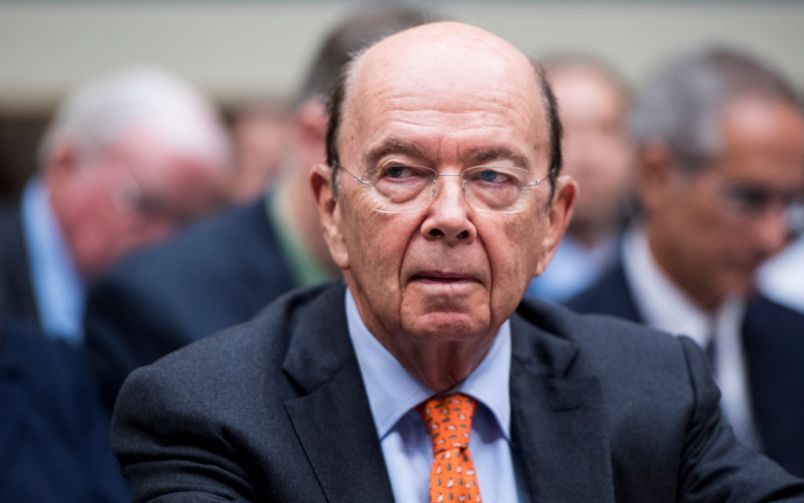A federal judge rejected a request by the Justice Department that he delay the proceedings in the House Oversight Committee’s census subpoena lawsuit until an appeals court decides the separate Don McGahn subpoena case.
After an hour-long hearing Friday in federal court in Washington, U.S. District Judge Randolph Moss put the case on a fast track to be briefed by the end of January, as the House Oversight Committee had requested, so that he would be ready to move forward as soon as the McGahn decision comes down.
Moss had harsh words for the reasons the Justice Department gave at the hearing for why the case couldn’t be fully briefed by the end of January.
The lawsuit, brought by the House last month, seeks enforcement of subpoenas issued in April seeking documents from the Trump administration’s failed attempt to add a citizenship question to the census.
When DOJ lawyer Elizabeth Shapiro told Moss that the Justice Department needed more time to go through the documents being requested, Moss said that position “strike me as problematic.” The department has had since the summer — when President Trump invoked protective assertion of executive privilege over all the documents — to do that work, Moss said.
Moss, a veteran of the Justice Department Office of Legal Counsel, also chided Shapiro’s defense of the administration’s move to stop negotiating with the House at that point, because the House had held Attorney General Bill Barr and Commerce Secretary Wilbur Ross in contempt for their defiance of the subpoenas.
Shapiro claimed that the administration had no ability to negotiate from then on, because the contempt vote amounted to having “a gun to our head.”
“I disagree entirely,” Moss, a soft-spoken and mild-mannered judge, shot back.
The lawsuit focuses on 11 key documents that the House says could shed light on the real reason the Trump administration wanted to add a citizenship question to the census. The Supreme Court ruled in July that Ross’ stated reason — for enforcement of the Voting Rights Act — was bogus.
However, House General Counsel Doug Letter confirmed at the hearing that the committee would possibly seek additional documents. He said it was his understanding that there were “thousands” of other documents that were being withheld by the administration on a claim of executive privilege that were otherwise responsive to the House subpoena.
On Thursday night, the Justice Department filed a request that Moss hold the case in abeyance until the D.C. Circuit Court of Appeals decides the McGahn case, which is scheduled for oral arguments on Jan. 3. The cases raise different issues, but the Justice Department argued that the McGahn decision would likely guide Moss in the census case, particularly on the jurisdictional questions (i.e. whether the court has the authority to decide the dispute in the first place.)
The House’s preference was to set a briefing schedule to have either a preliminary injunction request and/or expedited summary judgement motions briefed by the end of January, so that Moss could move quickly once the McGahn case was decided.
Letter said that the House believed this was a “dire emergency” because the census will begin on April 1. Letter said that the documents could help the House decide whether to take up emergency legislation, or at the very least, that getting “things out in the light of day” would influence the administration’s handling of the 2020 census.
“We can’t allow the census to be played with,” Letter said.
Moss ultimately denied the DOJ’s abeyance request from the bench, and said that, “it’s important to get going with the process.”
About an hour after the hearing wrapped up, Moss issued a briefing schedule that set oral arguments for Jan. 30. The move was a rebuke to the Justice Department’s claim in the hearing that fully briefing the case by the end of next month would be “completely infeasible.”
The case could lead to a landmark decision on executive privilege, an issue on which, Moss noted, there’s “not a lot of judicial guidance,” despite several internal DOJ memos on the topic . The Justice Department on Friday struggled to answer Moss’ question on whether it was still operating under a Reagan-era OLC memo within the context of this case.










